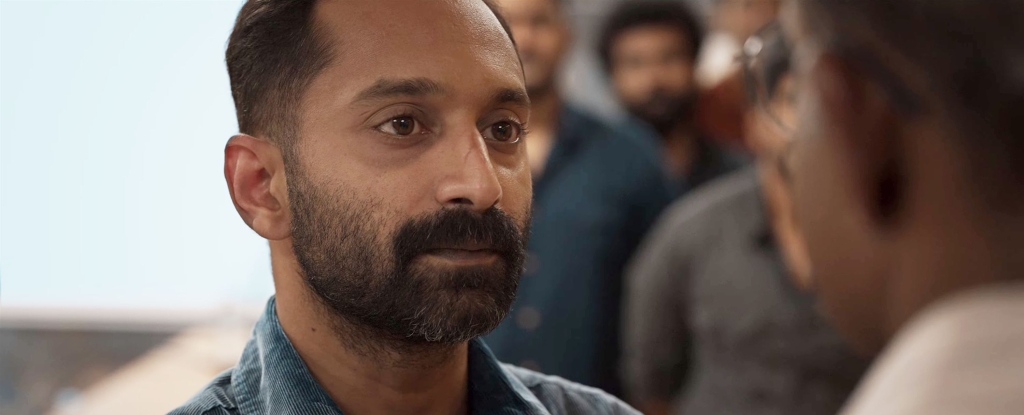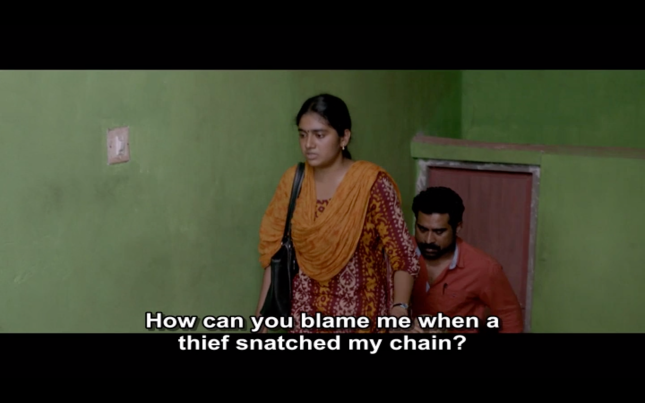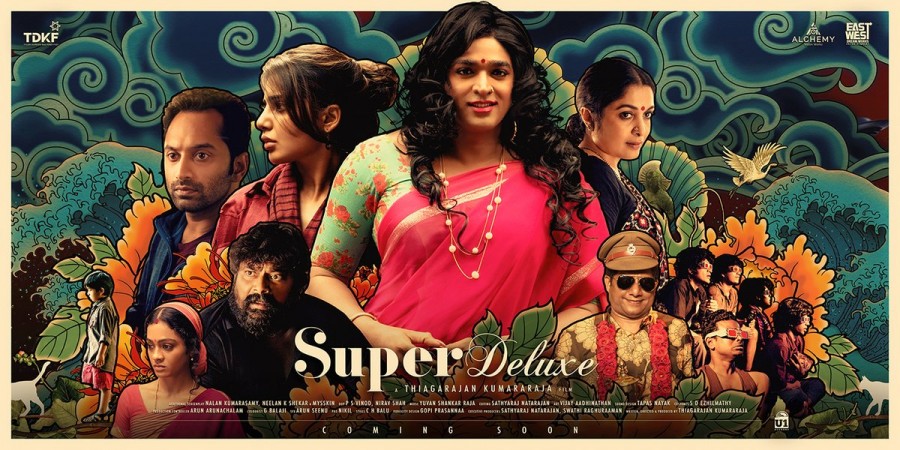
2022 is proving to be an excellent year for Indian cinema. Pushpa, RRR, KGF2 and now Vikram have really raised the bar and we’re only halfway through the year! In Vikram, Lokesh Kanagaraj delves back into the world he created with Kaithi and adds more threads to his tale of drug dealing, police corruption and gang warfare. With a who’s who of Southern Indian actors, an engrossing story and fabulous action sequences, Vikram is another ‘not to be missed’ film that deserves to be seen at the cinema.
The story begins with Police Chief Jose (Chemban Vinod Jose) bringing in a ‘black-ops’ team headed by an agent known only as Aram (Fahadh Faasil). The police have been sent a series of videos showing black-masked terrorists murder the local Head of Narcotics Stephen Raj (Hareesh Peradi), ACP Prabhanjan (Kalidas Jayaram) and Prabhanjan’s adopted father Karnan (Kamal Haasan). With the final murder seemingly unconnected, Aram immediately starts investigating Karnan, trying to find any possible link that might explain the deaths. His investigations reveal a man who had turned to drink and prostitutes after the death of his adopted son, but no link to the case Prabhanjan was involved with before his death. However, in the course of his inquiries, Aram discovers a missing shipment of drugs belonging to drug kingpin Sandhanam (Vijay Sethupathi) and identifies two more men involved with the drug trade who may be in danger. Veerapandian ((Gowtham Sundarajan) and Rudra Prathap (Aruldoss) are both likely targets as they reportedly know the location of the missing shipments, but despite the police, Sandhanam and Aram all trying to protect the men, the ‘men in black’ are hard to evade.



Aram and his men have no boundaries and as such threaten, beat and bully their way to the information required. Oddly, during the investigation Aram also marries Gayathri (Gayathrie Shankar) despite her ignorance about his real job and seeming unconcern about the man she finds being held prisoner in Amar’s offices. Apart from this one glimpse into a possible softer side, Fahadh Faasil’s Amar is as brutal and dangerous as the men he is seeking. As one of the top actors in the South, Fahadh Faasil is always impressive, but he is electrifying here to the point where he almost manages to steal attention away from Kamal Haasan. Fahadh’s body language, expressions and dialogue delivery are simply brilliant throughout and when his life starts to fall apart, his portrayal of a man at the limit of his ability to cope is excellent. One moment that really stands out is his absolute frustration when trying to resuscitate Prabhanjan’s young son which was simply perfect (standard filmi medical miracles aside of course). I also recognised the Queen of Subtitles rekhs as the dubbing voice for Dr Annie on the line assisting Amar with the process which added just the right note to the whole scene.



Vijay Sethupathi has played the role of a demented brutal gangster before, so the character of Sandhanam isn’t a stretch for him, but Vijay gives the character plenty of traits that set the gangster apart from his previous roles. Sandhanam has 3 wives, and there is an excellent montage where we see Sandhanam, his family and one of his wives practicing target shooting, perhaps to show he’s a supporter of equal opportunities for all. He certainly believes in keeping it in the family since his the main members of Sandhanam’s gang producing the drug supply are all from his large extended family, and he is ultra-protective of them, although happily expends his henchmen elsewhere when necessary. Able to switch between fake doctor, urbane businessman and unhinged gangster with a tendency to use his own product, Sandhanam is more complex than first appears and Vijay Sethupathi brings out all of these different facets of his character even with limited screen time.




Kamal Haasan is the focus of the film and despite not appearing much in the first half, his presence is still felt as the ghost manipulating much of the action. He is amazingly agile in the fight scenes, and if he appears rather less sprightly in an early dance sequence, there are reasons behind that which are revealed later in the story. This is another outstanding performance from one of the greats of Tamil cinema and he does not put a foot wrong. There is a good mix of humour in the dialogue too, and the addition of scenes with his family help to break up the actions sequences and add more fuel to the film’s fury. And if you thought Yash had a big gun in KGF2, think again – guns are so passé when you can have a cannon instead! The other support cast are also excellent from Narain reprising his role as Inspector Bejoy to Chemban Vinod Jose, Kalidas Jayaram, Sampath Ram and Ramesh Thilak. My favourite moment in the entire film comes from Agent Tina (Vasanthi) and I also loved the totally unhinged appearance by Suriya, who has a brief appearance at the end.



The action sequences here by Anbariv are excellent and Girish Gangadharan captures the effects beautifully. The scale of the film is huge with wide shots over the city of Chenni, massive gunfire and explosion sequences and then a total change to close-ups of Sandhanam’s gold teeth. Girish ensures it all looks stunning regardless. Even at 3 hours of runtime, nothing in the film drags and with Anirudh’s soundtrack underpinning the action and emotions of the film, the balance is perfect. Thanks to rekhs who has subtitled the entire film with perfect English although the use of ‘shucks’ and ‘crap’ as substitutes for the actual dialogue did make me smile. I’m assuming there is a censorship reason behind the change since the original words are clearly audible. Thanks too for the yellow font which is much more readable than white.




Vikram is high octane action with plenty of plot detail and connections that make the plot intriguing as well as exciting. The performances are uniformly excellent and I honestly think the film is many times better than anything I’ve seen from Hollywood in recent times. While a number of the characters from Kaithi resurface, Vikram is a self-contained story that can be enjoyed without having seen the earlier film, and the references aren’t so obscure that it’s impossible to work out previous links. I’m looking forward to the next instalment and seeing just what Lokesh Kanagaraj comes up with next in his mad and crazy world of drug lords and special agents.














































